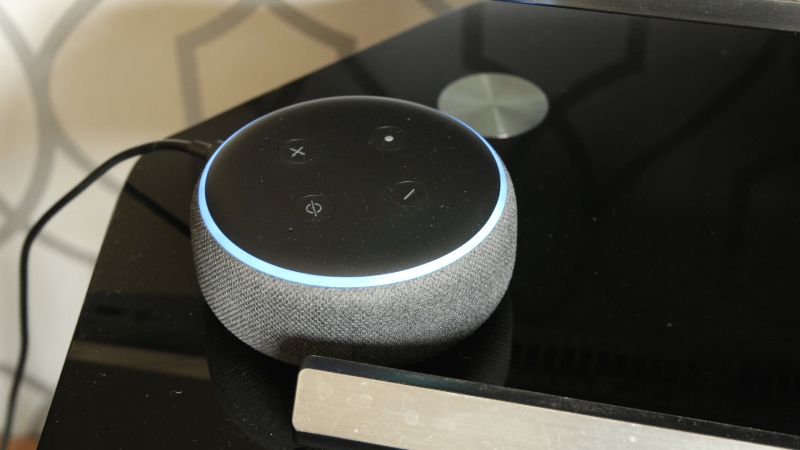A remarkable breakthrough in brain-computer interface technology has enabled a 64-year-old man with a degenerative disease to control an Amazon Fire tablet using only his thoughts. This advancement was made possible through an implant placed in a blood vessel in his brain, allowing him to mentally “tap” on symbols on the tablet. The achievement was announced by Synchron, a New York-based brain-computer interface company.
On Monday, Amazon revealed that the patient, who is battling amyotrophic lateral sclerosis (ALS), was able to operate the company’s digital assistant, Alexa, entirely through mind control. ALS is a neurodegenerative disorder that weakens muscles and can eventually lead to complete paralysis. The patient, referred to only as Mark, was able to stream shows, make video calls, play music, control smart home devices, shop online, and even read books, all through his thoughts.
Mark expressed how this technology has had a profound impact on his daily life, stating in a release, “Being able to manage crucial aspects of my environment and control entertainment restores some of the independence that I’m gradually losing.” His statement underscores the significance of this technology in providing enhanced autonomy to individuals suffering from conditions like ALS.
According to Synchron, this demonstration highlights the potential of brain-controlled smart homes. Mark was able to interact with Alexa-compatible devices such as smart lighting, door cameras, thermostats, and other home gadgets simply by using his brain. The company hopes this innovation will pave the way for a future where mind-control technology can be widely integrated into homes.
Tom Oxley, the founder and CEO of Synchron, said in the company’s release, “While most smart home systems today depend on touch or voice commands, we’re bypassing that entirely by sending control signals directly from the brain. Patients can operate devices in their homes without needing to use their hands or voice, relying solely on thought.” This represents a significant leap in assistive technology, potentially offering new independence to individuals with mobility challenges.
Amazon is not the only company working on connecting brains with technology. Elon Musk’s Neuralink is another player in this space. In January, Neuralink successfully implanted a brain interface in a man who had been paralyzed due to a diving accident. Musk, who owns Tesla and X (formerly Twitter), has claimed that Neuralink’s brain implant was a success. By July, Musk mentioned that Neuralink had moved on to a second patient as it continued to improve its technology.
The advancements by Synchron, Neuralink, and other companies exploring brain-computer interfaces suggest that the dream of merging human cognition with technology may be closer to reality than ever before, offering new possibilities for individuals with severe disabilities to reclaim their independence.
Topics #Alexa #Amazon #Amazon Alexa #Elon Musk #NeuraLink #news











